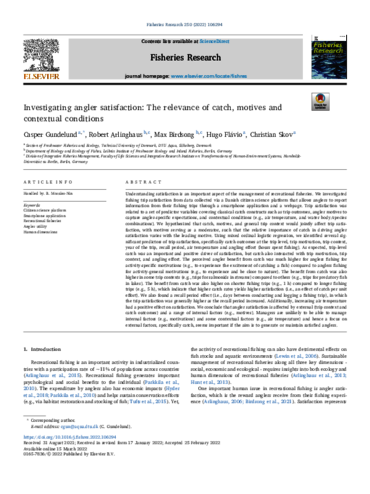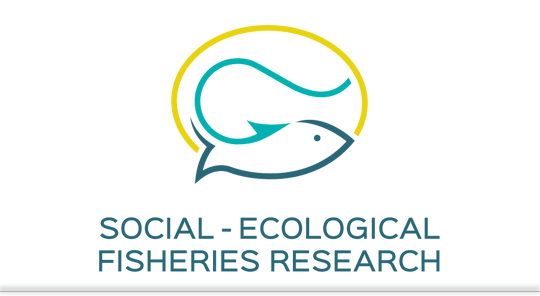Understanding satisfaction is an important aspect of the management of recreational fisheries. We investigated fishing trip satisfaction from data collected via a Danish citizen science platform that allows anglers to report information from their fishing trips through a smartphone application and a webpage. Trip satisfaction was related to a set of predictor variables covering classical catch constructs such as trip outcomes, angler motives to capture angler-specific expectations, and contextual conditions (e.g., air temperature, and water body/species combinations). We hypothesized that catch, motives, and general trip context would jointly affect trip satisfaction, with motives serving as a moderator, such that the relative importance of catch in driving angler satisfaction varies with the leading motive. Using mixed ordinal logistic regression, we identified several significant predictors of trip satisfaction, specifically catch outcomes at the trip level, trip motivation, trip context, year of the trip, recall period, air temperature and angling effort (hours spent fishing). As expected, trip-level catch was an important and positive driver of satisfaction, but catch also interacted with trip motivation, trip context, and angling effort. The perceived angler benefit from catch was much higher for anglers fishing for activity-specific motivations (e.g., to experience the excitement of catching a fish) compared to anglers fishing for activity-general motivations (e.g., to experience and be close to nature). The benefit from catch was also higher in some trip contexts (e.g., trips for salmonids in streams) compared to others (e.g., trips for predatory fish in lakes). The benefit from catch was also higher on shorter fishing trips (e.g., 1 h) compared to longer fishing trips (e.g., 5 h), which indicate that higher catch rates yields higher satisfaction (i.e., an effect of catch per unit effort). We also found a recall period effect (i.e., days between conducting and logging a fishing trip), in which the trip satisfaction was generally higher as the recall period increased. Additionally, increasing air temperature had a positive effect on satisfaction. We conclude that angler satisfaction is affected by external (trip context and catch outcomes) and a range of internal factors (e.g., motives). Managers are unlikely to be able to manage internal factors (e.g., motivations) and some contextual factors (e.g., air temperature) and hence a focus on external factors, specifically catch, seems important if the aim is to generate or maintain satisfied anglers.
Investigating angler satisfaction: The relevance of catch, motives and contextual conditions
Peer-reviewed

Gundelund, C., Arlinghaus, R., Birdsong, M., Flavio, H., Skov, C. 2022. Investigating angler satisfaction: The relevance of catch, motives and contextual conditions. Fisheries Research, 250, 106294.
Published
: 2022
Appeared in
: Fisheries Research, 250, 106294
